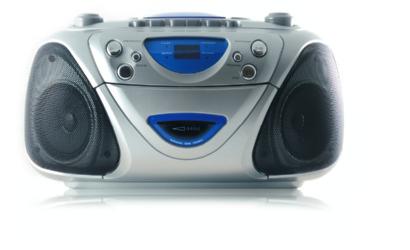Grammar summary gern, lieber, am liebsten gern Horst du gern Musik? Ja, sehr gern lieber Ich mache lieber selbst Musik. am liebsten Am liebsten spiele ich Gitarre.
Verbs in the present perfect with haben with sein regular verbs kaufen: Ich habe gestern ein Buch gekauft .
segeln: Wir sind nach Cuxhaven gesegelt . irregular verbs treffen: Wir haben viele Freunde getroffen sprechen: Sie hat mit der Lehrerin gesprochen finden: Was hast du gefunden ?
gehen: Martin ist zum Bus gegangen verbs with -ieren organisieren: Jana hat eine Party organisiert passieren: Was ist hier passiert ? separable verbs anrufen: Wann haben Sie bei uns angerufen ? mitbringen: Ich habe einen Kuchen mitgebracht mitnehmen: Wir haben Milla mit dem Auto mitgenommen ansprechen: Hast du den coolen Typen angesprochen ?
weggehen: Er ist plotzlich weggegangen inseparable verbs verkaufen: Ich habe es verkauft besuchen: Er hat seine Oma besucht verstehen: Ich habe das Wort nicht verstanden . bekommen: Tom hat ein Geschenk bekommen vergessen: Ich habe seinen Geburtstag vergessen
A 32 Training
zweiunddreißig
Modal verbs in the simple past wollenmussen konnen
ich wollte musste konnte du wolltest musstest konntest er/es/sie wollte musste konnte wir wollten mussten konnten ihr wolltet musstet konntet sie wollten mussten konnten Sie wollten mussten konnten
Sentences and questions with modal verbs in the simple past
1st position2nd position end of sentence
Ich konnte spielen .gestern nicht Tennis Was wolltestdu fragen ?
Giving advice: wu rde + infinitive Du hast eine 5 im Diktat bekommen:Ich wurde uben .fur das nachste Diktat
Dependent clauses with wenn end of sentence
Pia kann nicht lernen. Plato bellt. Pia kann nicht lernen, wenn Plato bellt . Wir schwitzen. Wir laufen schnell. Wir schwitzen, wenn wir schnell laufen .
Accusative: Welch-? accusative der den LehrerWelchen Lehrer magst du am liebsten? das das FachWelches Fach findest du gut? die die NoteWelche Note hast du in Englisch? die die SprachenWelche Sprachen lernst du?
Possessive articles in the accusative: mein, dein, sein, accusative der meinen Stift
Ich suche meinen Stift das dein Handy Gibst du mir dein Handy? die seine Tasche Kolja sucht seine Tasche die meine SachenHast du meine Sachen?
A 33 Training dreiunddreißig
Skill training: Listening

The German Museum in Munich
a Look at the pictures. What words come to mind with each picture? Write your ideas on the board.
b You will hear a radio broadcast. Pay attention to the words on the board.
Bild 1: Wo ist ...? 1Bild 2 Bild 3
Did you notice it? The pictures already provide a lot of information. They correspond to the sequence in the listening text. Pretty easy!

c Write a question for each of the pictures in your notebooks. The questions also have to fit with the listening text.
d Listen to the radio broadcast one more time. Can you answer your questions? Write the answers in your notebook.


Antwort 1: In ...


A 34 Training
1 2 3
1 1.26 vierunddreißig
Bild
- Deutschland - Wo?
Mu¨nchen
Emily tells about her day.
What did Emily do? Stand up and join in!
What kind of noise is that?

Water maybe? Is she at a lake? Pay attention to sounds. Then you will be able to understand things much better.
Animals are human?!
a Read the following questions and answers.


1. In welchem Zoo lebt Ujian? 2. Was fur ein Tierist Ujian? 3. Was kann Ujian?
a In Zu rich. a Ein Papagei. a Tanzen.
b In Heidelberg. b Ein Affe. b Lachen.
c In Stuttgart. c Ein Wolf. c Pfeifen.
b Write the important words from the questions in your notebook. Write the word one below another.
c You will hear a radio broadcast. Write the correct answer to every word or every question in your notebook.






... habe ich meine Zähne geputzt ... Zoo Zoo Heidelberg
I am going to tell you my trick. I paid attention: When do I hear the word Zoo”? Shortly after that I heard the name of a city. I recognized the word, because I had read it earlier. I paid attention closely: Is it the correct answer? Always listen to the end of the sentences. Decide only then.
A 35 Training
2 1.27 3 1.28 funfunddreißig
1.
2. ... 1.
—>
2. ...
Am Rhein

The Loreley
a Loreley” is the name of a cliff on the Rhine. Look at the two maps and the map in the front of the book. Where is the Rhine? Where is the Loreley?

b Look at the pictures. What do you see? Write the words on the board.
c Listen to the first part of the story Die Loreley” and put the pictures in order. Then tell the story in class.
C ist das erste Bild. Loreley ...

 A der Felsen Graf Fischer
A der Felsen Graf Fischer
A 36 Training
4 1.29 sechsunddreißig
der
der
D B
Die
der Felsen
d What do you think: How will the story continue? Work in groups. Write the story to its conclusion. Present your story to your classmates.
e Listen to the end of the story. Who is Loreley and what happens to her? Which answer is correct?



A Loreley war eine Prinzessin. Sie ist mit einem Pferd vom Felsen gesturzt. B Loreley war die Tochter von einem Grafen. Sie ist im Rhein ertrunken.
C Loreley ist eine Marchenfigur. Sie lebt im Rhein und bringt Fischern Ungluck.


f Which ending do you like best? The ending in 4d or the ending in 4e?
Research with a partner on the internet. What can you see at the Loreley cliff today? Type the keyword Loreley” in a search engine. Report.


A 37 Training
1.30 5 siebenunddreißig der Soldat der Fluss Rhein” E C
